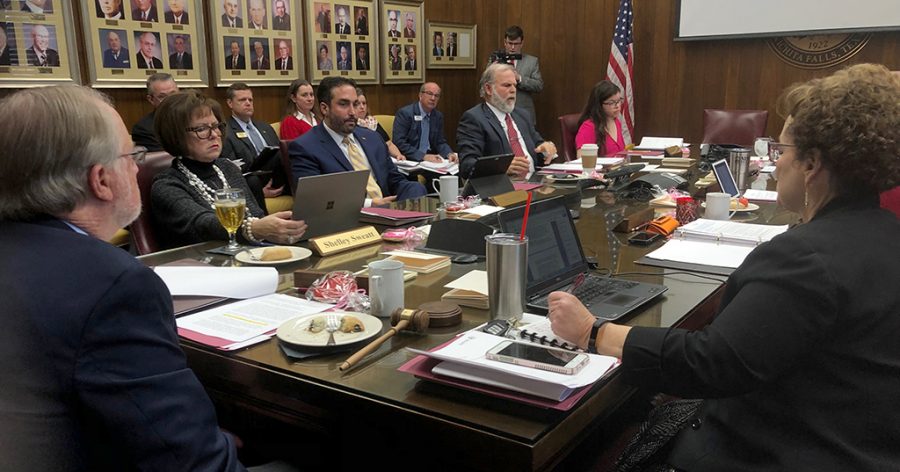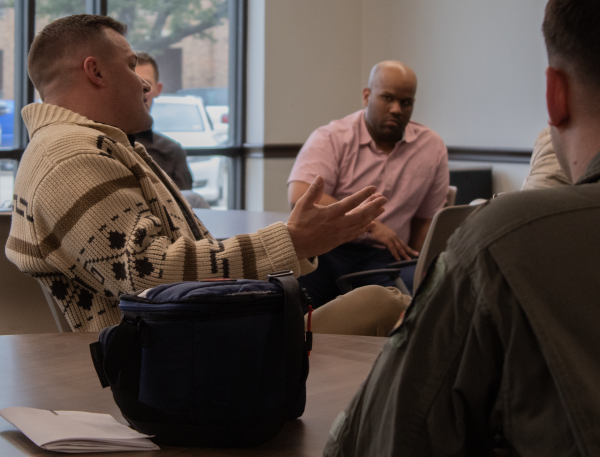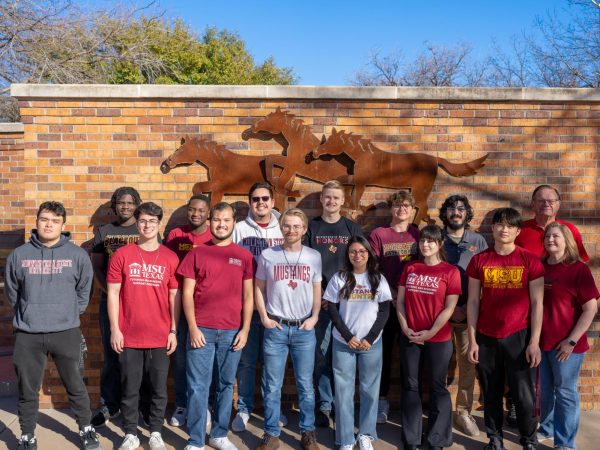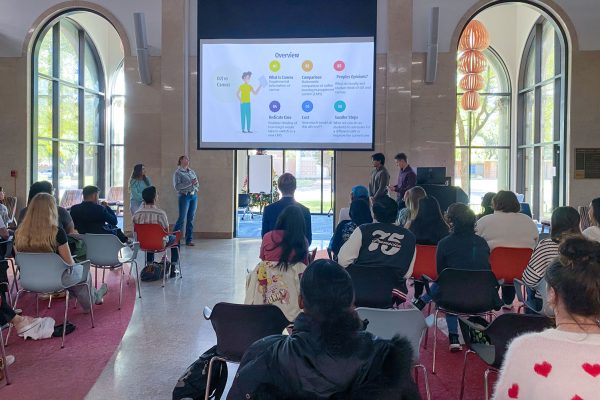Board of Regents discuss fees, tuition, enrollment
The MSU Board of Regents met Feb. 14 to discuss issues from enrollment to tuition. Photo by Bradley Wilson.
A day meant for love was instead filled with emotions resulting from a Board of Regents meeting held in the Harding Building. In all about 29 people attended the board meeting with seven board members gathered around the center table. Board of Regents met to discuss enrollment, tuition, and security fees among other things Feb.14.
Perhaps the most timely topic the members discussed was enrollment, because it didn’t meet expectations.
“Our target for enrollment is the numbers we made in the fall, but we were 100 freshmen short this term. Although, we averaged great numbers with juniors and seniors those numbers just didn’t carry over to new enrollment,” Fred Dietz, vice president of enrollment, said.
Dietz said enrollment dropped from last spring by 1.2 percent in terms of credit-hour production and by 1.6 percent in terms of headcount. ENROLLMENT REPORT
However, he said, “The good news is that we’ve seen a slight increase from fall to spring.”
Enrollment last spring was 87.6 percent of fall enrollment. This spring, it was 88.2 percent.
“That’s encouraging.”
Dietz said officials are working to expand partnerships with community colleges as well as making it easier for students to enroll in the university.
He also discussed retention and the plans to use new software to identify students who are at risk of not continuing. He said the software would help look at things geography, SAT scores, class rank and financial aid.
He said the ultimate goal is to reach enrollment of 8,000, some 2,000 more students than we have now.
DUAL CREDIT
Dietz also discussed dual credit — allowing high school students to get college credit.
” Texas has just exploded with dual credit not only on the four year level but also at the community college level, so this is an area we think we need to not only jump into quickly but also for a couple of reasons. One is enrollment— but also to control the narrative a little bit in the sense that — we are accepting a lot of dual credit from a lot of other institutions. I think Dr. Johnson and the deans are really interested in bringing that dual credit in to our instructors and our faculty instead of accepting so much dual credit from a lot of other institutions,” Dietz said.
When students enroll in Midwestern State, he said, he wanted our faculty to be teaching the classes.
SECURITY FEE
Board members also heard a proposal from Student Government Association President Ellie Gunderson about a new security fee.
Right now, only students who have cars on campus pay the parking fee that would be set at $130 next year. However, Gunderson’s proposal is that the parking fee be replaced with a security fee that all students would pay. The security fee would cover parking, lights on campus, as well as IT security. It would be paid per semester: $50/each long term and $25/each summer term. This fee will generate $140,000 in additional revenue as yet unmarked.
“The idea of this security fee is to eliminate the parking pass that students have to pay to park on campus. The reason for this is that it is going up by $20 every single year and is getting a lot of backlash. By doing a security fee it would make it cheaper on students. By doing it $50 a semester and $25 over the summer…The students that are buying the parking decals are the ones that are paying for campus security. So, only a portion of the students are paying for those services and all students are benefitting from them.”
TUITION
Interim Vice President for Administration and Finance Valarie Maxwell said they were proposing a tuition increase of 2.8 percent over fall 2018, making the university designated tuition $2,033.25 for incoming freshmen and the total bill for a student taking 15 hours of $4,947, up from $4,812.25 in 2018.
University President Suzanne Shipley said, “My experience has lead me to look at inflation and try to make small increases in tuition every year, instead of not increasing tuition at all and then having to come back and dramatically increase.”








